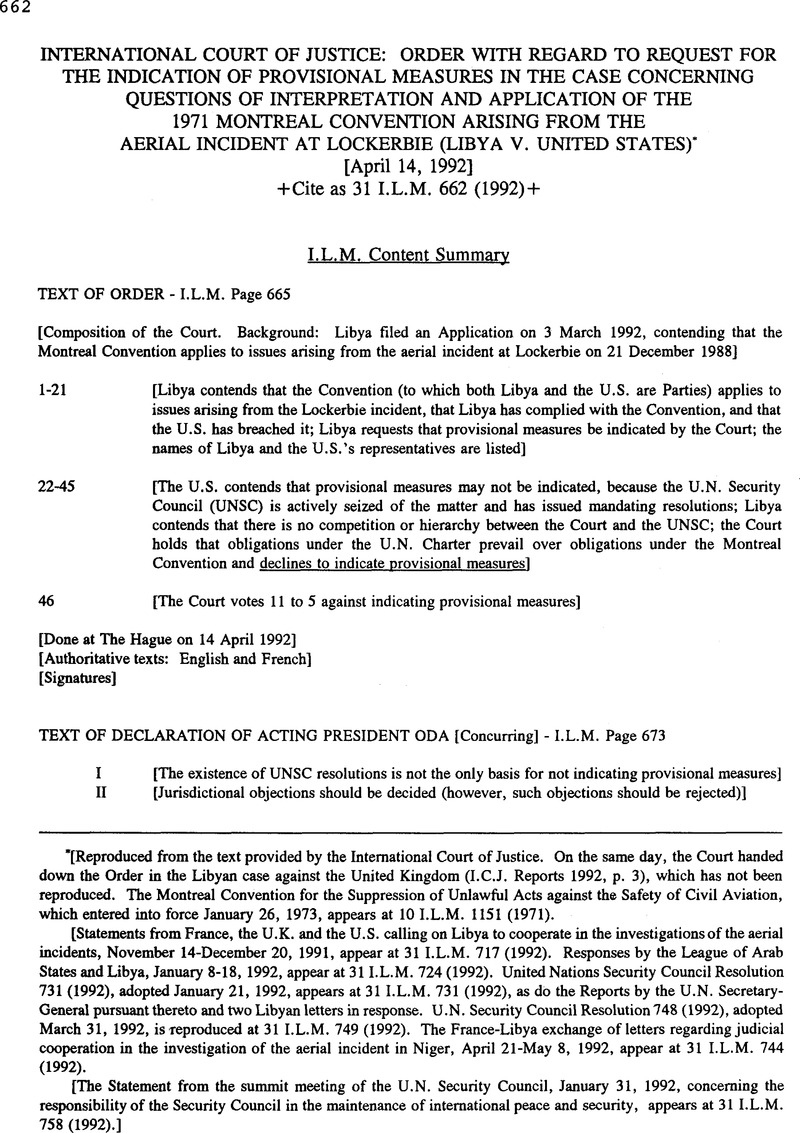Published online by Cambridge University Press: 27 February 2017

* [Reproduced from the text provided by the International Court of Justice. On the same day, the Court handed down the Order in the Libyan case against the United Kingdom (I.C.J. Reports 1992, p. 3), which has not been reproduced. The Montreal Convention for the Suppression of Unlawful Acts against the Safety of Civil Aviation, which entered into force January 26, 1973, appears at 10 I.L.M. 1151 (1971).
[Statements from France, the U.K. and the U.S. calling on Libya to cooperate in the investigations of the aerial incidents, November 14-December 20, 1991, appear at 31 I.L.M. 717 (1992). Responses by the League of Arab States and Libya, January 8-18, 1992, appear at 31 I.L.M. 724 (1992). United Nations Security Council Resolution 731 (1992), adopted January 21, 1992, appears at 31 I.L.M. 731 (1992), as do the Reports by the U.N. Secretary- General pursuant thereto and two Libyan letters in response. U.N. Security Council Resolution 748 (1992), adopted March 31, 1992, is reproduced at 31 I.L.M. 749 (1992). The France-Libya exchange of letters regarding judicial cooperation in the investigation of the aerial incident in Niger, April 21-May 8, 1992, appear at 31 I.L.M. 744 (1992).
[The Statement from the summit meeting of the U.N. Security Council, January 31, 1992, concerning the responsibility of the Security Council in the maintenance of international peace and security, appears at 31 I.L.M. 758 (1992).]
1 S/23306;
2 S/23309;
3 S/23307;
4 S/23308;
5 S/23317;
1 Unless one supposes that resolution 748 (1992) has as its object, or effect, not to withdraw a right from an Applicant State, but to prevent the exercise, by the Court itself, of the judicial function with which it has been invested by the Charter, in which case one might be led to ponder seriously over the lawfulness of that resolution, even at this stage of provisional measures. It would, indeed, be manifestly incompatible with the Charter for an organ of the United Nations to prevent the Court from accomplishing its mission, or for it actually to place the Court in a state of subordination which would be contrary to the principle of separation and independence of the judicial from the executive power, within the United Nations.